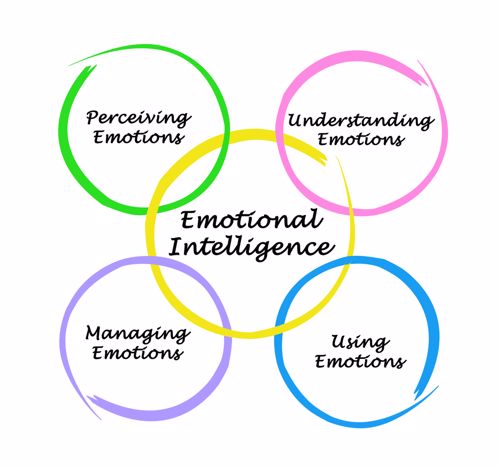
Conversational intelligence: Leveraging emotional intelligence for effective communication
22 Aug 2023
As a leader, your ability to communicate effectively is paramount. It’s not just about conveying information; it’s about fostering understanding, inspiring action and building relationships. At the heart of this lies emotional intelligence.
Understanding emotional intelligence
Emotional acumen is the ability to understand, use and manage your emotions positively to relieve stress, communicate effectively, empathise with others, overcome challenges and defuse conflict. It comprises five key components:
Recognising and understanding your own emotions is the essence of self-awareness. It’s about knowing how your feelings impact your behaviour and how your actions, in turn, affect others.
When it comes to self-regulation, it’s all about controlling disruptive impulses and moods. It involves thinking before acting and effectively managing your emotional reactions, even in challenging situations.
Motivation goes beyond the surface. It’s not just about money or status but an inherent passion for your work. It’s the drive to pursue goals with energy and persistence, maintaining a positive outlook even in the face of adversity.
Empathy is about connection. It involves understanding and sharing the feelings of others, recognising their emotional states and responding in a way that acknowledges their feelings.
Managing relationships effectively is a crucial social skill. It involves clear communication, conflict management and the ability to inspire and influence others towards a common goal.
Each of these components plays a crucial role in shaping how we interact with others and navigate our social environment.
The role of emotional intelligence in communication
Emotional competence is a cornerstone of effective communication. In fact, a study by TalentSmart found that it is the strongest predictor of performance, explaining 58% of success in all types of jobs. Your ability to perceive, control and evaluate emotions — in yourself and others — can make or break your ability to communicate efficiently.
Emotionally mature leaders are adept at reading and responding to their team’s emotional climate. They understand that emotions can drive behaviour and impact people — positively and negatively. They can harness this understanding to foster open communication, build trust and promote a positive work environment.
 As a leader, your emotional intelligence can largely influence your team’s success.
As a leader, your emotional intelligence can largely influence your team’s success.The impact of emotional intelligence on leadership and success
Emotional acumen can significantly impact team dynamics, leadership effectiveness and organisational success. A study by the Center for Creative Leadership found that the primary causes of executive derailment involve deficits in emotional competence, including difficulty handling change, inability to work well in a team and poor interpersonal relations.
As a leader, your emotional maturity can influence your team’s culture and dynamics. You can foster a more collaborative, communicative, positive environment by demonstrating emotional understanding. This, in turn, can lead to higher team productivity, increased employee engagement and better organisational performance.
Practical tips to enhance emotional intelligence
Here are some actionable steps you can take to enhance your emotional competence:
- Practice mindfulness: Stay present and attuned to your emotions. Reflect on your feelings instead of reacting impulsively.
- Cultivate empathy: Try to understand things from others’ perspectives. Listen actively and validate their feelings.
- Give and receive feedback constructively: Constructive feedback can help others grow and improve while receiving feedback with an open mind can help you do the same.
- Develop active listening skills: Active listening involves fully focusing on, understanding and responding to the speaker. It’s a crucial skill for effective communication and relationship building.
- Foster positive relationships: Building harmonious relationships with your team members can lead to a more healthy work environment, higher team productivity and increased employee engagement.
Improve your skills with ICML
If you’re interested in further developing your emotional intelligence and communication skills, consider reaching out to ICML for more information. Participation in our courses is an investment in yourself that can pay dividends in your leadership effectiveness, team dynamics and organisational success.





